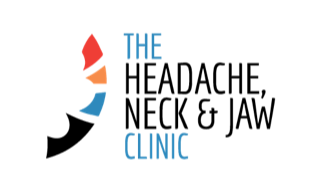What is Burning Mouth Syndrome (BMS)?
Burning Mouth Syndrome (BMS) is a chronic condition that feels like a burning, scalding, or tingling sensation in the mouth and presents additionally as severe pain from the inside and the outside of your mouth. It can affect your lips, gums, tongue, and the inside of your cheeks. It can feel severe, like you’ve burned your mouth with a hot drink, and can be accompanied by dry mouth or a change in taste and can last for months or years, or even the rest of your life.
Who is more likely to suffer from BMS?
BMS is more common in perimenopausal women, however, men and pre-menopausal women can be affected too. The female-to-male ratio is 7:1 and it affects 2% of the general population.
BMS symptoms
BMS is characterised by pain or discomfort in the mouth, with no known medical or dental cause. Symptoms can also be caused by allergies, infections, vitamin deficiencies, or ill-fitting dentures. Psychogenic factors, such as anxiety, depression, or stress, can play a factor in the BMS presentation. BMS is difficult to diagnose because there’s no cause and no abnormal blood results. BMS can be diagnosed by an Oral medicine specialist. It is believed to be a form of neuropathic pain. This means that nerve fibers in the mouth, for now, are functioning abnormally and transmitting pain despite the fact that there is no painful stimulus. It has been suggested that the nerves in the mouth that are responsible for feeling pain are easily stimulated and excited.
Here are some things you can try to help ease the symptoms:
-
- Avoid acidic foods, alcohol, cinnamon, mint, and spicy foods
-
- Chew sugar-free gum to produce more saliva
-
- Drink lots of fluids
-
- Suck on crushed ice
-
- Work on a good oral posture with jaw/ tongue exercises
-
- Reduce stress, down-regulate your sympathetic nervous system
How can physiotherapy make a difference?
Physiotherapy can’t cure BMS, but it can help to manage and reduce severe sensation and pain while offloading muscle tension and stress on the oral system.
After a thorough assessment of your jaw and facial area, we would start regulating the muscle tone of the jaw, face, and neck muscles. Following, we start integrating healthy simple habits like tongue positioning and oral posture to ensure the resting position of the oral system, discuss good breathing patterns, and start with easy stretches and activation of the facial muscles. Home exercises like self-massages and techniques to down-regulate the nervous system during stressful episodes or high-pain days are a big component of the physiotherapy approach. The aim is to empower the client to self-manage symptoms at home and long term.
Book an appointment today
Regular physiotherapy treatments over a longer period of time can help manage chronic pain and sensation and help gradually step by step gaining life quality back. Book an appointment with one of our expert Headache Neck and Jaw physios today to start managing and reducing the severity of your BMS symptoms.
Learn more about Burning Mouth Syndrome
One of our physiotherapists discusses BMS and how physiotherapy can help manage symptoms and provide relief.
Other Articles

Nigel Smith, co-founder of The Headache, Neck & Jaw Clinic, has over 20 years of experience as a specialist physiotherapist in jaw, neck, and headache pain management. Initially pursuing sports physiotherapy, Nigel found his true calling in TMJ treatment following a chance encounter with an oral surgeon.
His personal experience with TMJ issues and his dedication to developing conservative treatment pathways have made him a go-to expert for Dentists and oral surgeons seeking alternatives to surgical options.
Nigel’s commitment to excellence includes advanced training with the Watson Headache® Institute and lecturing at the University of Queensland. His expertise, backed by decades of hands-on practice and training, makes him a respected leader in this niche field. You can read more about my background, here.

